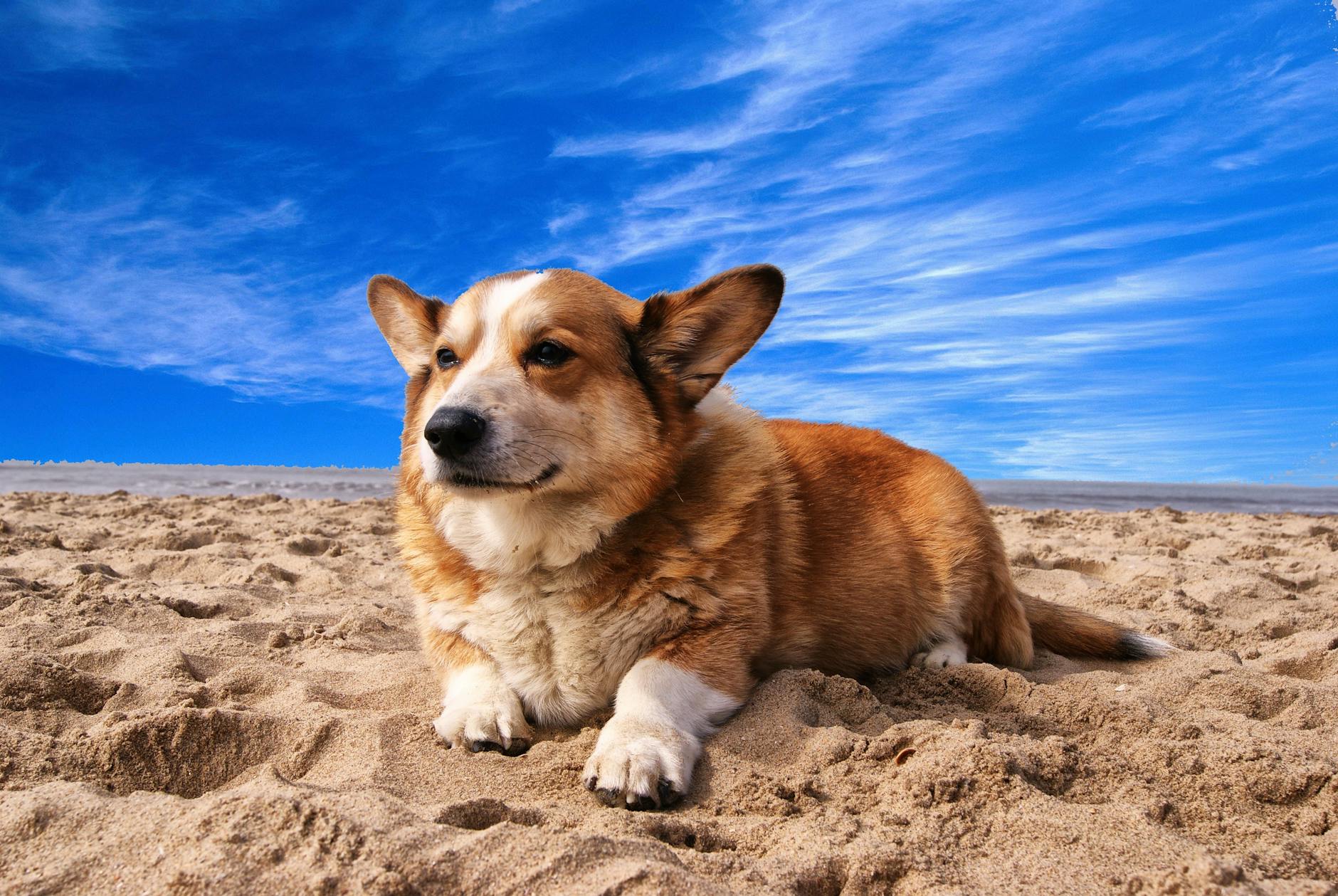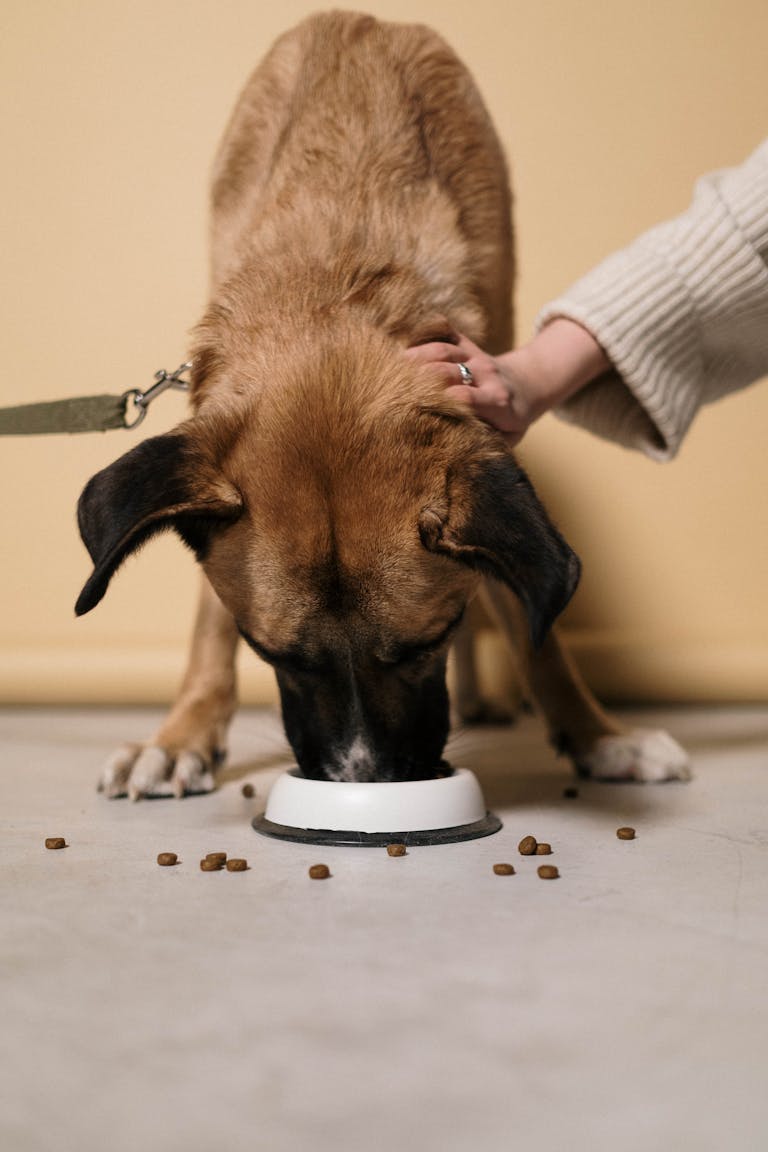Best Dog Foods for Corgis

Best Dog Foods for Corgis in 2024: A Complete Owner’s Guide Corgis are small but mighty dogs with unique personalities and specific dietary needs. Active breeds need balanced nutrition to support their energy levels and optimal health.
A proper diet can help prevent common issues like obesity and joint problems, which Corgis are prone to. If you’re unsure where to start, this guide can help you choose the food for your furry friend. For more insights on their care and traits, check out Are Corgis Good Dogs?
Table of Contents
Understanding Corgi Nutritional Needs
With their lively personalities and stocky builds, Corgis require a diet that matches their unique breed characteristics. Their compact, muscular structure and high activity levels require a well-balanced diet with vital nutrients. A poor diet can lead to obesity, joint troubles, or coat problems. Here’s how to meet their nutritional needs.
High-Quality Protein Sources

Photo by Glenn
Protein is the foundation of a healthy diet for Corgis. It fuels their muscles, supports growth, and stabilizes their playful energy levels. Since Corgis are particularly active, they thrive on high-protein meals.
Here are ideal protein sources for Corgis:
- Lean meats like chicken, turkey, or beef.
- Fish such as salmon or whitefish also provide omega-3 fatty acids.
- Eggs are a great source of complete proteins.
- Plant-based options, like lentils or chickpeas, for those incorporating alternative proteins.
Choosing high-quality proteins ensures your Corgi receives essential amino acids for muscle maintenance and energy. For more tips on protein-rich diets, see Best Dog Food for Herding Breeds 2024.
Essential Nutrients for Corgis
They need more than protein to keep your Corgi healthy and happy. Essential vitamins and minerals are crucial for vitality, coat quality, and overall health. Here is what to focus on:
- Calcium and phosphorus: Supports strong bones and teeth, which are especially important for their sturdy frame.
- Omega-3 and Omega-6 fatty acids: Enhances coat shine, reduce inflammation, and improve skin health.
- Vitamin A: Boosts vision and immune function.
- B vitamins: Help regulate energy metabolism.
- Zinc and selenium: Critical for a healthy immune response.
Opt for dog foods that balance these nutrients, or consult your vet if supplementation is required. Check out this Corgi Feeding Guide for additional details.
Caloric Intake and Weight Management
Corgis have hearty appetites but are prone to weight gain due to their tiny legs and robust torsos. Maintaining the right caloric balance is crucial to avoid obesity, which can lead to joint issues and other health complications. According to experts, adult Corgis typically require about 320–480 calories daily, depending on their activity levels and age.
Here are a few tips for managing weight in Corgis:
- Monitor portion sizes: Use a calorie guide tailored to their size and energy needs.
- Limit treats: Treats should account for no more than 10% of daily calories.
- Encourage exercise: Regular walks and playtime help burn excess energy.
- Measure meals: Overfeeding—even slightly—can quickly lead to extra pounds.
See the Diet & Nutrition Guide: Corgis for a more in-depth look.
Understanding what your Corgi needs to thrive can set the foundation for a vibrant and energetic furry companion. Watch their portions, provide the proper nutrients, and let them lead a healthy, tail-wagging life.
Types of Dog Food for Corgis
Feeding your Corgi the correct type of food is essential for their health, energy, and longevity. With so many types of dog food available, it’s necessary to understand which choice best suits your pup’s needs. Here’s a breakdown of the primary options.
Dry Dog Food (Kibble)

Photo by Nataliya Vaitkevich
Dry kibble is one of the most common choices for pet parents, mainly due to its simplicity and affordability.
Pros:
- Convenience: It’s easy to store, measure, and serve.
- Dental health benefits: The crunchy texture can help reduce plaque buildup.
- Long shelf life: Stays fresh when stored properly.
- Cost-effective: Ideal for budget-conscious dog owners.
Cons:
- May lack hydration: Contains less moisture, so fresh water is a must.
- Ingredient quality varies: Always check for high-quality ingredients to avoid fillers.
For a helpful guide on selecting quality kibble, check out this detailed list of the best dog foods for Corgis. See Dog Nutrition Guides- Dog Breeds if you’re also looking for breed-specific considerations.
Wet Dog Food
Wet food, often sold in cans or pouches, provides different benefits than kibble. It’s particularly suitable for dogs with specific dietary or health-related needs.
Benefits:
- High moisture content: Great for hydration, especially if your Corgi isn’t a big water drinker.
- More palatable: Its rich aroma can entice even picky eaters.
- Easier to chew: Ideal for senior dogs or those with dental issues.
Situations When Wet Food Might Be Preferable:
- If your Corgi has trouble maintaining hydration levels.
- When transitioning puppies to solid food or aiding senior dogs with weaker teeth.
- To supplement a dry-food diet for added flavor and nutrients.
For more wet dog food recommendations, read The 4 Best Dog Foods for Corgis.
Raw Diet
Raw feeding, including uncooked meat, raw bones, and other fresh ingredients, has grown popular among pet owners. While it’s a more natural feeding option, it has advantages and challenges.
Insights into Raw Feeding:
Benefits:
- Promotes healthier coats and skin.
- Reduces stool volume and odor.
- It provides a more natural diet closer to what a dog might eat in the wild.
Challenges:
- Preparation time: Requires careful planning and preparation.
- Health risks: Improperly handled raw meat can carry bacteria.
- Cost: High-quality raw ingredients can be pricey.
Before switching to a raw diet, please consult your vet to ensure it meets your Corgi’s nutritional needs. If you’re interested, We Feed Raw provides some raw options tailored for breeds like Corgis.
By understanding these dog food types and their pros and cons, you can decide which one works best for your furry friend. Each Corgi is unique, so consider factors like age, health, and activity level when choosing.
Top Recommended Foods for Corgis
Corgis are lively, loving, and notoriously food-motivated. Proper nutrition can help your pup live a vibrant, healthy life, whether you’re feeding a Pembroke Welsh Corgi or a Cardigan. Picking the right food involves understanding their unique dietary needs, from high-quality proteins to joint-supporting nutrients. Let’s explore some top recommendations for your furry companion.
Brand Reviews and Recommendations

Photo by cottonbro studio
Not all brands are created equal when it comes to finding the best food for Corgis. Choosing reputable options that meet AAFCO (Association of American Feed Control Officials) standards for nutritional adequacy is important. Here are some recommended brands known for their quality:
- Purina Pro Plan Active 27/17 Lamb & Rice Formula: This option supports Corgis’ high energy levels and healthy body condition. For more details, check out Purina’s guide.
- Wellness CORE Grain-Free Small Breed Formula: Rich in protein and formulated for smaller, high-energy breeds, it’s ideal for Corgis who need muscle maintenance.
- Hill’s Science Diet Adult Small Bites Chicken & Barley Recipe: A balanced diet created explicitly for small breeds. It contains antioxidants for a boosted immune system (see more here).
- Royal Canin Weight Care Health Nutrition: If your Corgi tends to gain weight quickly, this low-calorie formula can help them stay healthy. Visit Dog Food Advisor’s recommendations for additional options.
These brands have been reviewed and approved by veterinarians and dog owners alike. Always consult your vet to determine which food best suits your pup’s needs.
Homemade Corgi Diet Options
For those who prefer to have more control over their Corgi’s meals, homemade diets can be a great option. Not only can this cater to specific dietary needs or allergies, but preparing meals at home can also be a bonding experience. Here are a few safe and simple ingredients to include in your Corgi’s diet:
- Proteins: Cooked chicken, turkey, or lean beef (always avoid seasoning).
- Carbohydrates: Steamed sweet potatoes, brown rice, or quinoa. These provide lasting energy for your active pup.
- Vegetables: Carrots, green beans, or spinach are excellent for fiber and essential vitamins.
- Healthy Fats: A drizzle of olive oil or a dollop of plain, unsweetened yogurt supports a shiny coat.
- Supplements: Add a pinch of fish oil or turmeric for joint health and an anti-inflammatory boost.
Sample Recipe: Easy Corgi Bowl
- 1 cup of cooked lean chicken (shredded)
- 1/2 cup of steamed sweet potatoes
- 1/3 cup of chopped green beans
- 1 teaspoon of olive oil
Mix all ingredients and serve once cooled. This recipe is easy to digest and packed with nutrients!
If you’re interested in raw or home-cooked diet options, consult a pet nutritionist to ensure all nutritional bases are covered. For more ideas, check out the Corgi Diet & Nutrition Guide.
Providing a nutritionally sound diet tailored to your Corgi’s needs doesn’t have to be complicated. Whether leaning toward premium commercial foods or preparing meals from scratch, prioritizing your Corgi’s health and wellness ensures a happy, tail-wagging life!
Common Dietary Issues in Corgis
Corgis are charming, energetic dogs, but their dietary needs and challenges shouldn’t be ignored. Understanding and addressing common dietary problems can significantly impact their health, ensuring a happy and active life.
Obesity and Overweight Corgis

Photo by Pixabay
Obesity is a prevalent issue among Corgis due to their hearty appetites and relatively lower activity levels than working breeds. Excess weight can lead to serious health problems such as joint pain, diabetes, and heart disease.
Why are Corgis prone to obesity?
- Compact frame: Their tiny legs and stocky body are not designed to carry extra weight.
- Food motivation: Many Corgis are notorious snack lovers.
- Limited activity: They may gain weight quickly if exercise isn’t prioritized.
How can you prevent obesity?
- Monitor portions carefully: Use a measuring cup for consistency.
- Limit high-calorie treats: Replace them with low-calorie options like carrots.
- Regular exercise: Daily walks and play sessions help burn excess calories.
- Choose weight management diets if needed: Opt for specialized dog foods, like those discussed in Diet & Nutrition Guide: Corgis.
By maintaining a good balance of exercise and portion control, you can help your Corgi maintain a healthy weight.
Allergies and Food Sensitivities
Allergies and food sensitivities can trigger numerous uncomfortable symptoms in Corgis, such as itchy skin, recurring ear infections, or digestive upset. Understanding the root causes is essential to manage and alleviate these issues properly.
Signs of food allergies or sensitivities:
- Frequent scratching or licking.
- Skin redness, rashes, or hives.
- Chronic digestive issues such as diarrhea or vomiting.
- Chronic ear infections.
Steps to identify and manage them:
- Elimination Diet: Gradually introduce single-protein, limited-ingredient diets to rule out allergens. For more tips, visit Boosting Your Corgi’s Gut Health: Essential Tips.
- Consult a vet: Testing can pinpoint specific allergens.
- Switch to hypoallergenic food: Brands with novel proteins, like duck or kangaroo, may be a good alternative.
- Add supplements: Omega-3 fatty acids or probiotics can promote better skin and gut health.
A proper diagnosis and diet adjustment are key to managing your Corgi’s allergies effectively. For additional guidance, check out the Pembroke Welsh Corgi Feeding Guide.
By staying vigilant and proactive about your Corgi’s diet, you can prevent unnecessary discomfort and ensure your furry friend’s optimal health.
Consulting with Your Veterinarian
Regarding your Corgi’s health, your veterinarian plays a key role. They offer insight into your dog’s unique needs, ensuring their diet supports growth, health, and energy. Regular consultations help catch issues early and provide tailored advice for optimal nutrition.
Why Veterinary Advice Is Essential
Your vet understands your Corgi’s specific requirements better than anyone else. Whether it’s age, weight concerns, or allergies, they know how these factors influence your pet’s diet. Think of your vet as your partner in your Corgi’s health journey.

Photo by Tima Miroshnichenko
Reasons to consult your vet include:
- Diagnosing potential food sensitivities or allergies.
- Deciding between commercial, wet, or homemade meals.
- Adjusting diets as your Corgi grows, ages, or develops health issues.
If you’re unsure how to tweak or perfect your dog’s diet, regular assessments can help steer you in the right direction. Consulting your vet is especially important when selecting food for senior dogs. Learn more here about the best options for aging canines.
Situations When Consulting Is Critical
A vet consultation isn’t just for emergencies; it’s part of proactive pet care. Here are scenarios where their expertise is crucial:
- Switching to a new diet: Whether due to weight concerns or a new food type, make the transition safely.
- Addressing health concerns: Skin, joint, or digestive problems often link back to diet.
- Evaluating homemade diets: If you’re preparing meals at home, ensure you meet your dog’s nutritional needs. Check out resources like the Veterinary Nutritional Consultations website for specialized advice.
What to Ask During a Visit
Not sure where to start? Here are practical questions to ask:
- “How can I tell if the food I’m using meets their needs?”
- “Should I consider supplements for joint or coat health?”
- “What’s the best way to transition my Corgi to a new food without upsetting their stomach?”
Making the Most of Your Vet Partnership
Your vet is an invaluable resource for making informed dietary choices. Never hesitate to reach out, whether for minor changes or significant re-evaluations. For more insights, see Feeding Large Breed Dogs: Nutrition Tips, offering helpful tools for crafting a better diet and fostering your pet’s well-being.
Frequently Asked Questions About Feeding Corgis
Feeding your Corgi the proper diet can raise many questions, especially considering the many available options. This FAQ section addresses the most common concerns about feeding and maintaining your Corgi’s health.
What is the best type of dog food for Corgis?
Corgis thrive on high-quality, balanced diets tailored to their energetic and compact builds. Depending on your Corgi’s needs, you can choose among dry kibble, wet food, or raw diets. Dry kibble is the most popular due to its convenience and cost-effectiveness. Damp food is excellent for picky eaters or dogs needing additional hydration. If you prefer a holistic approach, raw diets can offer natural nutrients but require extra care in preparation. Learn more about feeding considerations at Diet & Nutrition Guide: Corgis.
How much food should I feed my Corgi?
The amount of food depends on your Corgi’s age, weight, activity level, and overall health. Generally, adult Corgis need around 320–480 calories daily. It’s best to start with the feeding recommendations on the dog food packaging and adjust them based on your pet’s weight maintenance or reduction goals. Puppies, seniors, and active dogs require tailored feeding plans—consult your vet for specific advice.
What foods should Corgis avoid?
Not all foods are safe for Corgis. Ensure that their diet excludes:
- Chocolate and caffeine (toxic to dogs).
- Onions, garlic, and chives (can cause anemia).
- Grapes and raisins (may lead to kidney failure).
- Excessive dairy products (can cause digestive upset).
- High-fat or fried foods (increases the risk of pancreatitis).
For comprehensive guidelines, visit How and What to Feed My Pembroke Welsh Corgi.
Can Corgis eat grain-free diets?
Grain-free diets have become popular but are not always necessary for every dog. Corgis with specific sensitivities or allergies to grains might benefit from grain-free options. However, recent studies suggest long-term grain-free feeding could be linked to heart disease in dogs. If you’re unsure whether grain-free is right for your Corgi, consult your vet for further guidance.
How can I tell if my Corgi is overweight?
Signs of an overweight Corgi include difficulty feeling their ribs, fat deposits around the tail base, or reduced energy levels. Obesity is a common issue for Corgis due to their small frame and love for food. To help manage their weight:
- Measure portions carefully.
- Limit treats to 10% of daily calorie intake.
- Increase playtime and exercise.
Explore tips on keeping your Corgi at a healthy weight by visiting Dog Breed Guide: Find Your Perfect Companion.
By staying vigilant about your Corgi’s diet and regularly consulting with a vet, you ensure your furry friend lives a long, healthy, and tail-wagging life.

Photo by Nataliya Vaitkevich
Conclusion
Feeding your Corgi a balanced, nutritious diet is one of the best ways to ensure they live a healthy and vibrant life. By selecting high-quality protein sources and essential nutrients and maintaining proper portion sizes, you can meet their unique dietary needs and prevent common health issues like obesity or joint problems.
When choosing food, consider your Corgi’s age, activity level, and specific health needs. For other breed nutrition advice, look at the detailed Dog Breed List.
Your furry companion counts on you to make informed choices that support their well-being. Start by consulting your vet and exploring trusted food brands tailored to their needs. A little effort goes a long way toward keeping those tails wagging!







One Comment